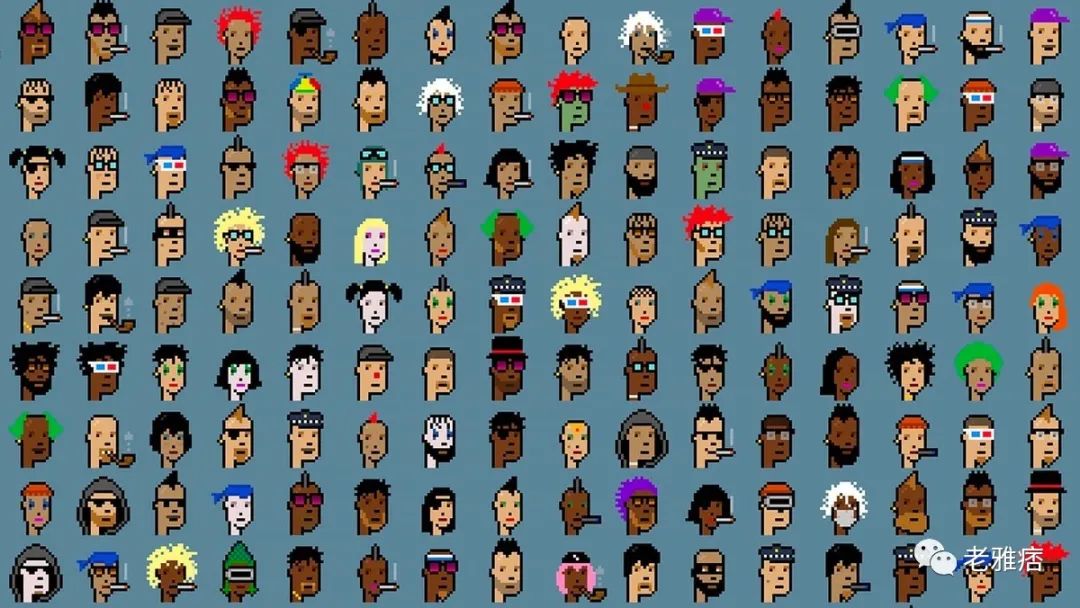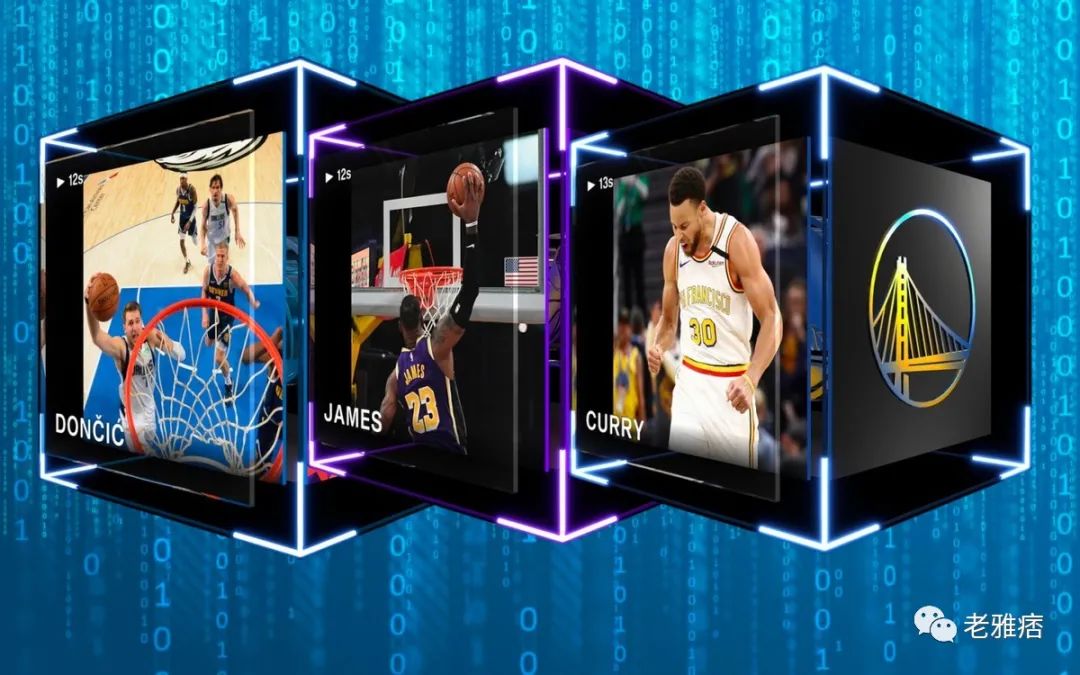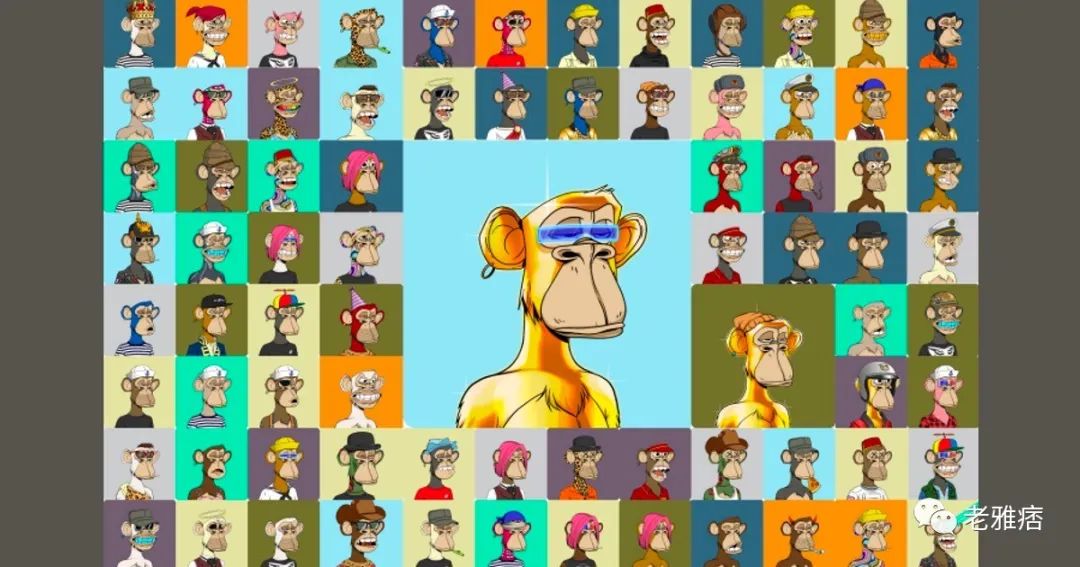Talking about the intellectual property rights of NFT: What are the benefits of holding an NFT?
Original Author: Old Yuppie
This article comes from the WeChat public account old yuppie (id: laoyapi)
Original Author: Old Yuppie

This article comes from the WeChat public account old yuppie (id: laoyapi)"first level title"Who owns NFTs?"Larva Labs, the creator of one of CryptoPunks' early NFTs, did not attach intellectual property rights to its NFTs. It uses something called an NFT license, which allows the use of NFTs for
personal, non-commercial use

. And that doesn't include selling a million copies of your
T-shirts from CryptoPunk.
This makes sense: in the real world, if you buy art from someone, that usually doesn't give you the rights to the underlying intellectual property by default. When you buy an NFT, you shouldn't expect intellectual property, says a cryptocurrency investor."fully owned"This has displeased some collectors. Many believe owners should be able to do what they want with NFTs, including profiting from them."Some NFT minters, like the makers of the popular Bored Ape Yacht Club, say NFT owners"fully owned
they. One owner created a music video out of apes. KINGSHIP, a virtual band of four bored apes, has signed with Universal Music Group. Another holder released a beer. And artist Dan Rollman created a cartoon out of his bored gorilla."Instead of waiting for project creators to add value to my NFT, I set out to build value around it myself,"He said in a DM on Twitter.

Still, Yuga Labs, the creator of the Bored Ape, still doesn't allow holders to use "Bored Ape's
--. In other words, you can exploit your Bored Ape, but not the Bored Ape. Yuga Labs has signed legendary manager Guy Oseary to expand into film, television and other formats.
There are many NFT projects using the Creative Commons CC0 license, which gives the owner almost all rights to use the NFT.
We should note: the smart contracts governing NFTs can be written in a variety of ways, from a one-time sale that facilitates the transfer of all rights to splitting ongoing revenue for creative works between the original creator and a series of owners.
first level title
The obvious way NFTs can be monetized is by selling them to third parties. For the buyer, however, the reality of buying an NFT is often not as straightforward as buying a physical asset. While the owner of an NFT can prove that it owns the NFT, it doesn't necessarily own anything more.
Let's use the analogy of a limited edition print of a work of art - if a collector owns a physical limited edition print, the collector will own the physical print itself, but will generally not have any title to the original artwork. This is an important distinction that is overlooked by much media coverage of nonprofits, which often falsely assumes that ownership of an NFT is equivalent to some form of ownership of the underlying asset.
first level title
secondary title
1. Is NFT protected by copyright?
secondary title
2. Can NFT creators mint artwork they created for past/current employers?
If a work of art is created in the course of an author's work, or is commissioned through a written contract, the party who hired the author to create it is the owner of the work and associated copyright. This is an exception to the general rule that authors own the copyright to every piece of their creation."secondary title"The key is to understand that the buyer who gets the NFT simply owns a specific digitally certified copy of the NFT. It does not provide rights to copies of every version of the asset or the underlying copyright ownership of the NFT. This is because each NFT has a unique serial number or
(hash), cannot be copied. Because a hash is an encryption key generated from a single digital file, it only amounts to one copy of that material. Copyright will remain with the creator of the artistic work. However, this position can be changed by contract. A smart contract/separate agreement governing the NFT could specify how ownership, including copyright, is transferred when the NFT is sold.
first level title
secondary title
1. Transfer Considerations
secondary title
2. Licensing considerations
3. Trademark considerations
Intellectual Property and NFTs
As brands become more active in creating their own tokenized assets in the early stages of the NFT boom, brand owners should consider expanding their trademark registrations to include trademark uses and classifications that include NFTs. Doing so at an early stage may give brand owners greater control and monitoring of the use of their intellectual property on the blockchain. NFT owners who have completed the trademark application process are allowed to sue infringers and therefore have better brand protection.
first level title
Intellectual Property and NFTs
It is not surprising that third-party intellectual property is often intertwined in NFTs without proper authorization or permission from the rights holders. In some cases, NFTs include unauthorized copyrighted content.
Predictably, intellectual property rights holders are stepping up enforcement efforts against unauthorized use of protected content in NFTs. NFTs have huge monetary clout in entertainment and collectibles, but the impact of NFTs on underlying intellectual property remains unclear. What is clear, however, is that the rights (beyond ownership) associated with obtaining NFTs are limited.
NFTs seem to have immediate applications. Specifically, this tokenization technology can be used in areas such as watermarking, where creators can use NFTs to verify the authenticity of digital artwork or trading cards. Regardless of how NFT technology is utilized in the future, one thing is for sure - NFTs should not be confused with the inherent confirmation of authenticity of the merchandise itself. This is especially important as fraudulent reports of NFTs increase.



